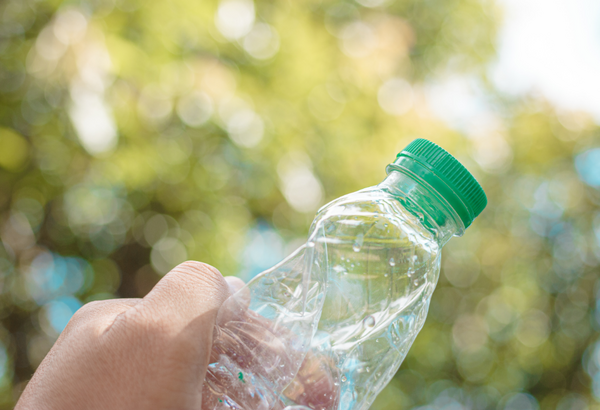
When it comes to overhauling something big — like a long-term recycling solution for a campus the size of Notre Dame’s — change comes in phases.
In 2020, the Office of Sustainability planned to launch a pilot recycling program in the busy, 11-story Grace Hall, where dozens of administrative offices are housed. But the pandemic came on the scene, and the University had much of its staff work from home, leaving Grace, and many other campus buildings, unoccupied.
Residence halls, however, remained occupied since in-person classes resumed in August 2020. With a pivot, the Office of Sustainability introduced the pilot program in the residence halls instead. At the same time, existing recycling programs on campus were temporarily paused.
Now, the office is expanding the pilot program to include Geddes Hall, Malloy Hall, Reyniers Life Building and Decio Faculty Hall. The buildings vary in purpose — including classrooms, labs and/or offices — which allows Building Services to test the revamped processes in different environments, make adjustments as needed and ensure its staff members are trained.
The plan includes a new, direct partnership with Recycling Works, a local materials recovery program that picks up the recyclables from campus. The relationship allows Notre Dame to be a more active participant in recycling with the enhanced ability to trace and measure where recyclables go when they leave campus and that they are, in fact, recycled. This aligns with the University’s Catholic mission to care for the common good and be good stewards of the environment.
The success of the expanding campus recycling program relies on each of us. We must put the correct items into recycling containers (see below) and take our recyclables to a central recycling location in our buildings. When your building is added to the pilot program, your building manager will let you know where the central location is in the building.
How to recycle if the pilot program is in your building ...
Accepted in campus single-stream recycling:
- Bottles — empty and rinsed glass and #1 and #2 plastics
- Cans — empty and rinsed aluminum and steel
- Paper — anything larger than your fist, includes magazines, newspapers, catalogs, envelopes, printer paper and note paper
- Cardboard — flattened cardboard is collected in a designated cardboard recycling cart in your building. For large amounts of cardboard, you can fill out an AiM work request using the problem code RECYCLING to schedule a pick-up.
Not accepted in single-stream recycling:
- Plastic bags or plastic wrap of any kind
- Plastics labeled #3 through #7
- Flexible packaging and multi-laminated materials like candy bar and snack wrappers
- Food and liquids
- Styrofoam, packing peanuts
- Shredded paper
- Beverage cups, deli containers
- Plastic utensils
- Small, broken household appliances like toasters
- Batteries, light bulbs, electronics, ink/toner cartridges — Please fill out an AiM work request, using the problem code “recycling”
How to reduce and recycle now and later ...
- Look for ways to reduce your overall waste, and remember that recycling is a form of waste.
- If your office/department chooses single-use coffee pods, sign up for the Keurig K-Cup Recycling Program.
For more information on recycling in non-residential buildings, visit green.nd.edu.
Originally published by at ndworks.nd.edu on November 16, 2021.